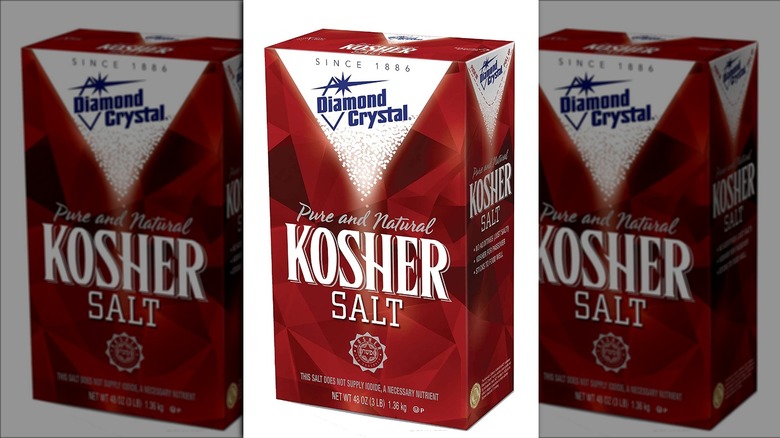Here's Why Ina Garten Never Uses Table Salt
It used to be, salt was just salt. It came in a cardboard cylinder with a little pour spout and the only varieties it came in were iodized and un-iodized, for those who bothered to differentiate between the two. If you were a real salt connoisseur, you might have branched out into using the coarser kosher salt for pickling or pretzels, and then there was always that rock salt stuff that you sprinkled on your sidewalk when it iced over.
In recent years, though, it seems you hardly ever come across a recipe asking for just plain salt. Instead, recipe developers all seem to ask for sea salt or pink Himalayan salt or even super-fancy salts like Maldon or fleur-de-sel. Does it really, truly make that much difference what kind of salt you use? Well, opinions (and palates) may differ, but if you want Ina Garten's two cents' worth , she says yes, it most certainly does, and she wouldn't be caught dead with ordinary old table salt in the house.
Ina Garten prefers a specific brand of salt
Garten who got her start in the food biz by opening a gourmet grocery, remains an advocate of using specialty ingredients. As befits anyone calling themselves a "Barefoot Contessa," she prefers pricier condiments than those you might pick up at your local Piggly Wiggly. In response to someone who wrote in to the "Ask Ina" section on her website asking whether the type of salt used in cooking made that much difference, Garten was quite emphatic in stating that it absolutely did.
"I never use table salt because it has a metallic taste," she replied, adding that such salt also "tastes extremely salty." She says all her recipes are based on the Diamond Crystal brand of kosher salt, something that will run you about $10 for a 3-pound box on Amazon. You may be tempted to substitute a cheaper or more readily available brand of kosher salt, but the celebrity chef would rather you didn't, saying "even using a different brand of kosher salt makes a difference!" She adds that sea salt has a less salty flavor than does kosher, and that fleur-de-sel is milder still, though she will use this product as a finishing salt rather than a cooking one.

